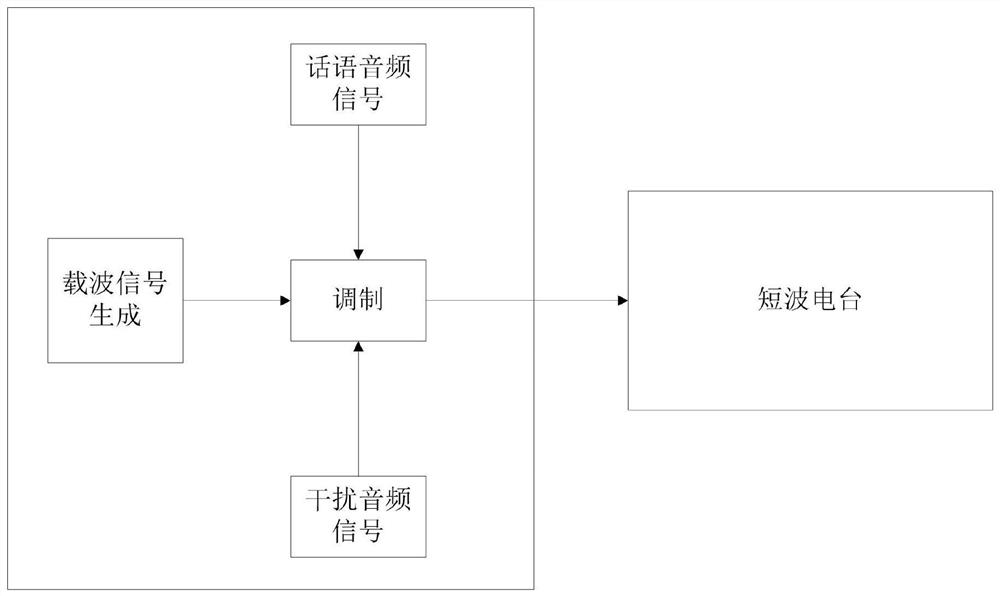A Test Method for Noise Suppression Performance of Shortwave Radio Station
A technology of short-wave radio stations and testing methods, which is applied in receiver monitoring, transmitter monitoring, etc., can solve the problems of inability to quantitatively test and analyze the degree of squelch, and achieve the effect of improving repair reliability
- Summary
- Abstract
- Description
- Claims
- Application Information
AI Technical Summary
Problems solved by technology
Method used
Image
Examples
Embodiment Construction
[0025] In order to make the technical means, creative features, goals and effects achieved by the present invention easy to understand, the present invention will be further elaborated below.
[0026] In the traditional squelch test, only standard signals are used to input the shortwave radio station to test the squelch performance of the radio station. This method can only qualitatively judge the squelch performance, and cannot provide quantitative parameters for repair and adjustment of squelch suppression.
[0027] In order to quantify the squelch ability of the short-wave radio station, the method proposed by the invention adds an interference signal to the single-tone modulated standard signal to form a dual-tone modulated signal. The squelch suppression ratio is defined as the ratio of the modulation degree of the speech audio modulation signal to the modulation degree of the interference audio modulation signal when the product is in a critical state of maintaining squel...
PUM
 Login to View More
Login to View More Abstract
Description
Claims
Application Information
 Login to View More
Login to View More - R&D
- Intellectual Property
- Life Sciences
- Materials
- Tech Scout
- Unparalleled Data Quality
- Higher Quality Content
- 60% Fewer Hallucinations
Browse by: Latest US Patents, China's latest patents, Technical Efficacy Thesaurus, Application Domain, Technology Topic, Popular Technical Reports.
© 2025 PatSnap. All rights reserved.Legal|Privacy policy|Modern Slavery Act Transparency Statement|Sitemap|About US| Contact US: help@patsnap.com

